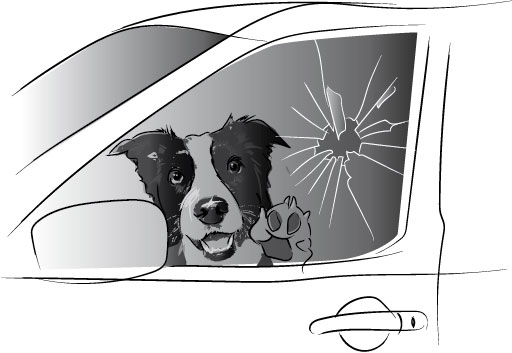2.2.1 Ratio decidendi
This Latin term literally loosely translates as the reason for the decision. The ratio decidendi of a case is not the actual decision, or order, like ‘guilty’ or ‘the defender is liable to pay compensation’. The ratio decidendi establishes a precedent, which is the legal principle (law) used by the judge or judges in deciding the legal problem raised by the facts of the case. This legal principle, which is an abstraction from the facts of the case, is known as the ratio decidendi of the case (see Box 3).
Box 3 Example of ratio decidendi

A couple leave their dog in their car while they pop out to a shop. For a reason that cannot later be discovered, the dog gets excited and starts jumping around. The dog was not suffering from dehydration or from being overheated. The dog paws the rear glass window. It shatters and a shard of glass flies off and, unfortunately, into the eye of a passer-by, who later has to have his eye removed. Are the couple liable to pay compensation for the man’s eye? The court said no. People should take care to guard against ‘realistic possibilities’. They should only be liable, the court said, if they caused others harm by doing something that could be reasonably foreseen as likely to cause harm.
We are not liable if we fail to guard against ‘fantastic possibilities’ that happen to occur. The accident in this case, the judges ruled, was just such a ‘fantastic possibility’. The couple therefore did not have to pay compensation. The reason for the decision in this case, the ratio decidendi, can therefore be expressed simply as: where harm was caused to a pedestrian by a dog smashing the window of the car that it was in, and where this sort of incident was unforeseeable, the defendants were not liable.
